The desire to be more self-sufficient has increased by leaps and bounds in recent years. People are growing their own herbs and vegetables and raising their individual animals for meat. In particular, alternatives to chicken are increasing in popularity.
That’s what we’re talking about today with a specific focus on one type of chicken and egg alternative. Here’s everything you need to know about quail eggs.
Should I Eat Quail Eggs?
If you want to! Most people are hesitant to try out any eggs that they don’t find on supermarket shelves. However, quail eggs are commonly eaten all around the world. The egg is even considered a delicacy in some parts of Asia and Europe.
Japanese chefs often use the egg in their recipes, either cooked or raw, with sushi. In South American countries like Brazil, quail eggs are a more common food item. You can often find them as toppings on burgers and hotdogs.
You can even get them as street snacks in some Asian countries, namely the Philippines and Vietnam.
These cultures all use quail eggs in their cuisine, and all of them use the eggs in different ways. Japan uses them raw over tuna and other fish. Meanwhile, Brazil uses them as a topping, fixing the boiled egg in place with a toothpick. The street food variety sees the egg hardboiled, dipped in batter, and deep-fried. Some areas even just skewer the hardboiled egg and sell it as it is.
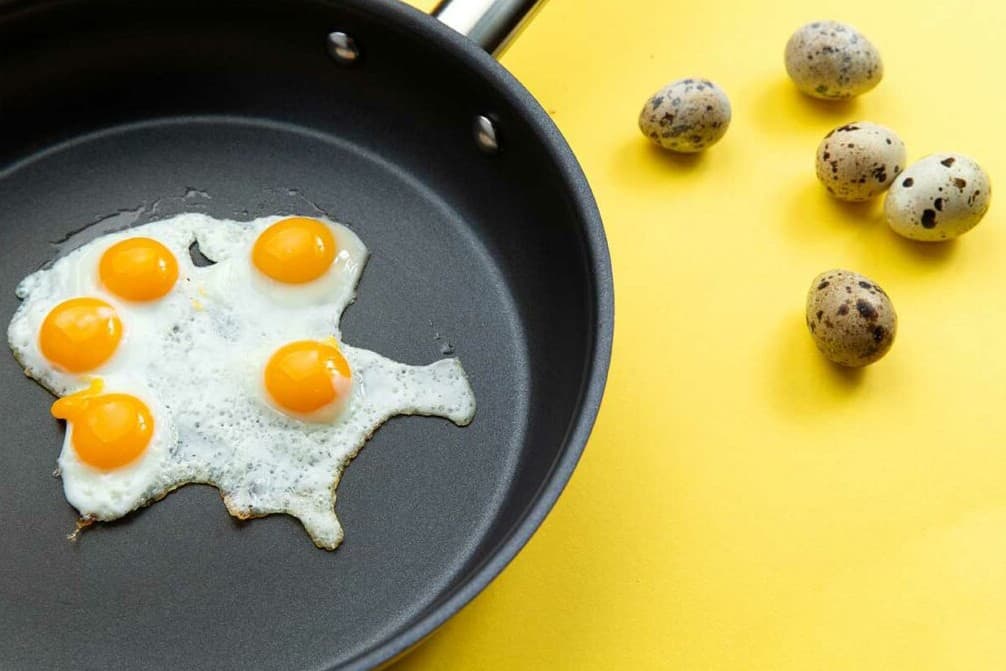
So you can definitely eat them! Ultimately, there is not much of a difference between eating a quail egg and a chicken egg. The main difference is the animal the eggs are from. The taste is nearly identical!
There can be some differences in taste and texture, though it all depends on how the bird was raised. Mainly, a quail egg’s yolk-to-egg ratio is noticeably higher than that of a chicken egg.
The result is an egg that is much thicker than its chicken counterpart, and much creamier. That’s not inherently a bad thing, though. There are plenty of stories of people trying quail eggs, and switching to them permanently because of the texture.
On top of all that, quail eggs are actually super healthy for you. The eggs contain a high level of vitamin B. This vitamin works to prevent heart disease, as well as assist your digestive system, preventing disorders.
If you’re hesitant, ask yourself why. There’s no reason to be apprehensive. The eggs taste the same, so why not give them a go?
What Do Quail Eggs Look Like?
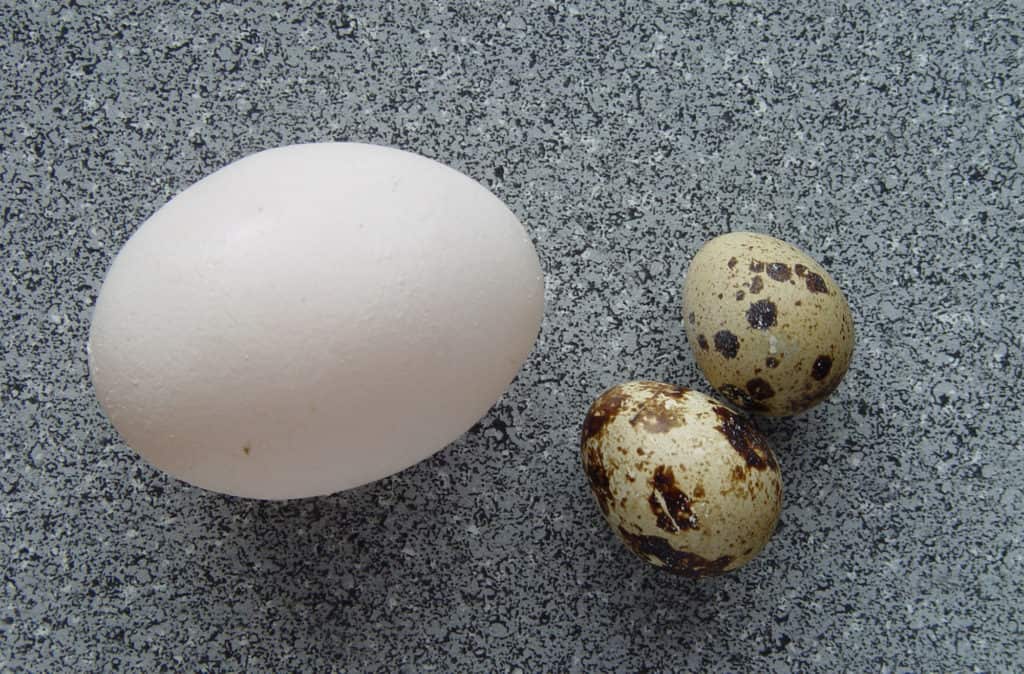
If you’ve never seen a quail egg, then you might be surprised by its appearance, especially if you are used to seeing chicken eggs. Quail eggs have a distinct appearance compared to chicken eggs, even though the two have similar tastes.
When you first see a quail egg, you should notice just how much smaller it is than a chicken egg. Despite the staggering difference in size, the shape of the egg is pretty much that familiar oval.
The color of quail eggs is different too. Instead of that apricot tan color, quail eggs are often darker and more cream-colored. The eggs are also decorated with little splashes of black and brown color around the shell.
It’s a strangely cute egg, being so much smaller than a duck or chicken egg. There’s also a charm to its unique, speckled appearance. In fact, you can even get an egg that is the size of a jellybean, depending on your breed of quail.
With just how much smaller quail eggs are compared to chicken eggs, you might suspect differences in laying amounts. Your suspicions would be spot on. It might be because the eggs are smaller, or simply because quails are prolific layers. Either way, some breeds can pop out up to 300 eggs in one session. Yikes.
On top of that, quail also starts laying eggs earlier on in life, too. Whereas chickens start laying at 24 weeks, quails begin at six. So not only are you going to have more eggs, you’re going to have them sooner, as well.
There is one drawback for quail compared to chickens here, though, and that’s lifespan. Chickens have a life expectancy of about eight years. Quail has an average expectancy of two. That’s a depressing difference. Although, it just means you’re going to get a big burst of eggs in a short time frame.
So weigh up the differences of which approach you would prefer. While you get more eggs quicker with quail, you also need more eggs due to the size. With chickens, you get fewer eggs spaced out over a more extended period of time, and the eggs are bigger.
Do Quail Eggs Have Health Benefits?
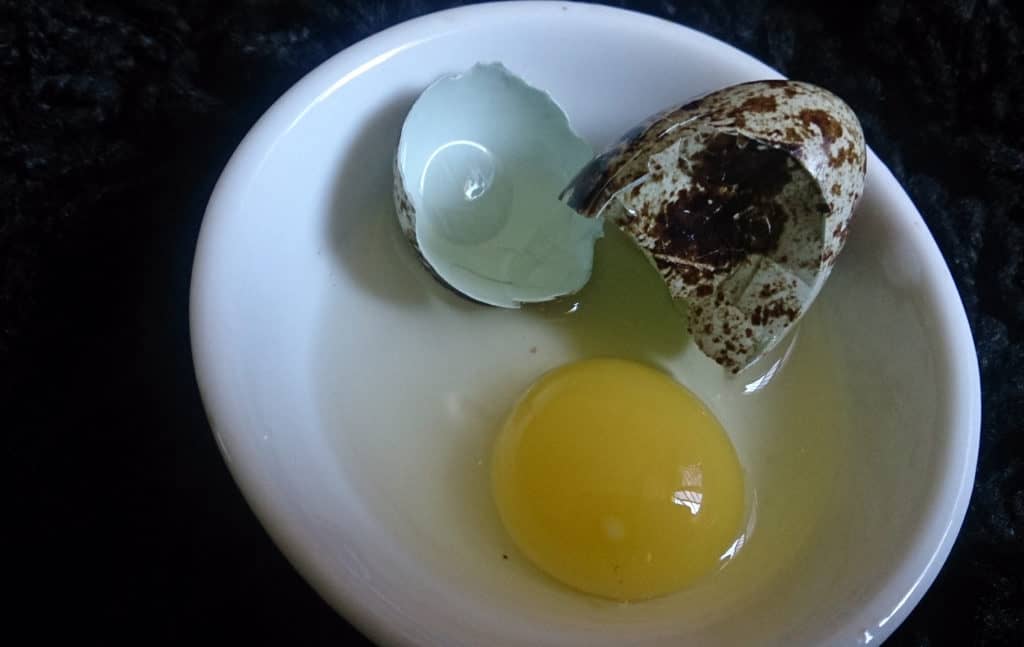
We talked a little bit about this earlier. While quail eggs are known for having high Vitamin B content, the benefits actually go much further. Before we dive into that, it’s helpful to know some nutritional information.
One quail egg, or 9 grams, contains:
- Calories: 14.
- Fat: 1 gram.
- Protein: 1 gram.
- Fiber: 0 grams.
- Carbs: 0 grams.
- Riboflavin: 6 percent of your daily value, or DV.
- Choline: 4 percent DV.
- Pantothenic acid: 3 percent DV.
- Folate: 2 percent DV.
- Vitamin B12: 6 percent DV.
- Vitamin A: 2 percent DV.
- Iron: 2 percent DV.
- Selenium: 5 percent DV.
- Phosphorus: 2 percent DV.
Some of you might find this information technical, but it’s crucial to understand the nutritional value. All you need to know is that despite the size of the eggs, it is jam-packed full of nutrients. However, for those in the know, that is some interesting information.
Let’s break that info down a bit more. Riboflavin and selenium are two nutrients that assist your body with the breakdown of food. The two also help with the conversion of food to energy.
The iron and Vitamin B12 content help to bolster your red blood cells to keep your energy up. As well as that, the two of them can help with your nervous system function.
There have actually been a few tests and studies done into the health benefits of quail eggs for humans. There was a weeklong study done on 77 people who suffer from allergic rhinitis.
The test subjects were given a zinc supplement and quail egg antioxidant. The study found that there was a noticeable improvement in symptoms within one hour. However, it is unknown how much of this was the work of the antioxidant alone.
There has also been a study carried out on mice. In this, researchers found that quail egg yolk could be used to treat an inflammatory condition called eosinophilic esophagitis. This is a dangerous inflammation of the throat that is brought about by food allergies.
It is certainly interesting stuff, and the amount of research on the topic is surprising. However, more human study is really necessary before anything can be set in stone.
What Quail to Raise for Eggs
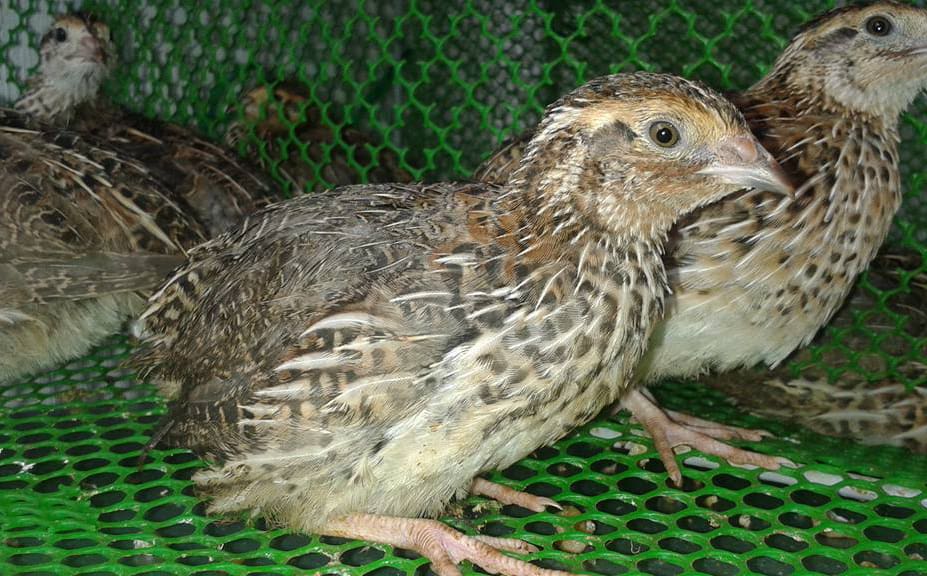
There are a lot of different breeds of quail out there, each with its own niche. For example, there is the button quail, which is more of a pet than anything else. Then there’s the Coturnix, which is great if you’re looking for a meaty bird.
However, when it comes to egg-laying, there is only one quail worth your time. That is the Japanese quail. Japanese quail follows the traditional quail life expectancy and maturing cycle and can lay 200 plus eggs in its first year alone.
What you feed your quail is not only important for the health of the bird. The diet you go with can also affect the quality and taste of your quail eggs. A quail’s diet is mainly seeds and grains, with the bonus proteins of certain bugs and grubs thrown in there.
As well as feeding your quail its natural diet; you should also let the bird free-range. Like ducks and chickens, free-range quail eggs are of a much higher quality than coop eggs. Not only in flavor but also in nutrients as well.
The difference between natural, free-range eggs and mass-produced eggs is actually very noticeable. If the quail is eating its natural diet, the yolk of the egg should be much brighter. On top of that, there should be much more flavor to the egg, whereas the other type of egg is going to be bland.
Given how quickly quails lay eggs, and how much each bird can lay, you might find yourself with some leftovers. Should you wish, you can sell these extra eggs for a bit of profit. Setting up shop at a farmer’s market would be your best bet, although you could also sell to supermarkets or directly to restaurants.
In much of the western world, quail eggs are seen as exotic and rare. This means you can charge a bit higher for your eggs. At least, higher than that of chicken and duck eggs, despite the size.
However, you need a license to sell quail eggs in some states, so make sure you’re obeying the law. If you’re not sure, a quick Google search should tell you whether or not you need a license.
Summary
That was everything about quail eggs. Hopefully, you’ve found it helpful. If you’re more of a watcher and less of a reader, consider giving them a view. Good luck on your quail raising and egg collecting journey

Joseph Hudson has been raising chickens for over 15 years. In 2018, he completed the Agriculture & Natural Resources program at Mt. San Antonio College. He currently raises over 1400 chickens on his 7.5-hectare farm. He keeps sharing his experience on raising healthy and happy chickens on Chicken Scratch The Foundry.
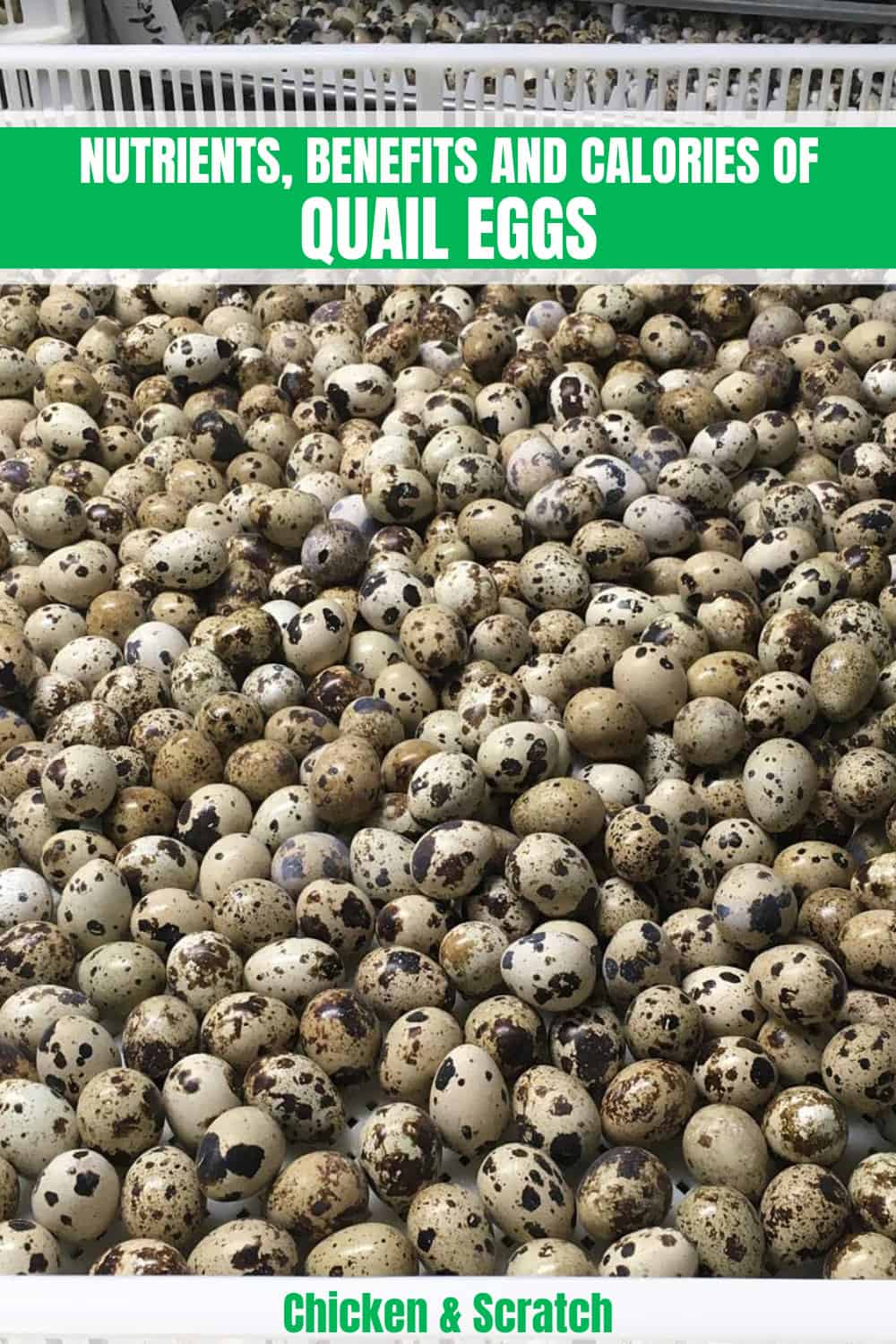







My husband and I both love the Bob White Quail and have purchased some eggs to hatch and keep them as pets. We are looking forward to raising them and eating the eggs but I am sure depending on how many roosters we end up with we may eat a few birds too. This post was very informative and I took notes so I would remember the important information. Thank you so much for helping us to make this a fun hobby for us.